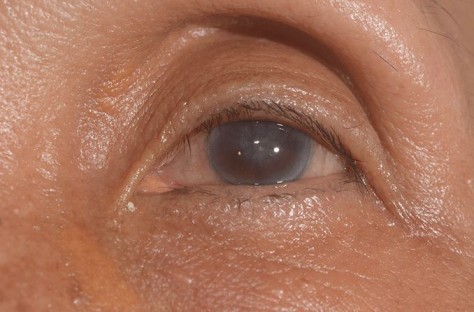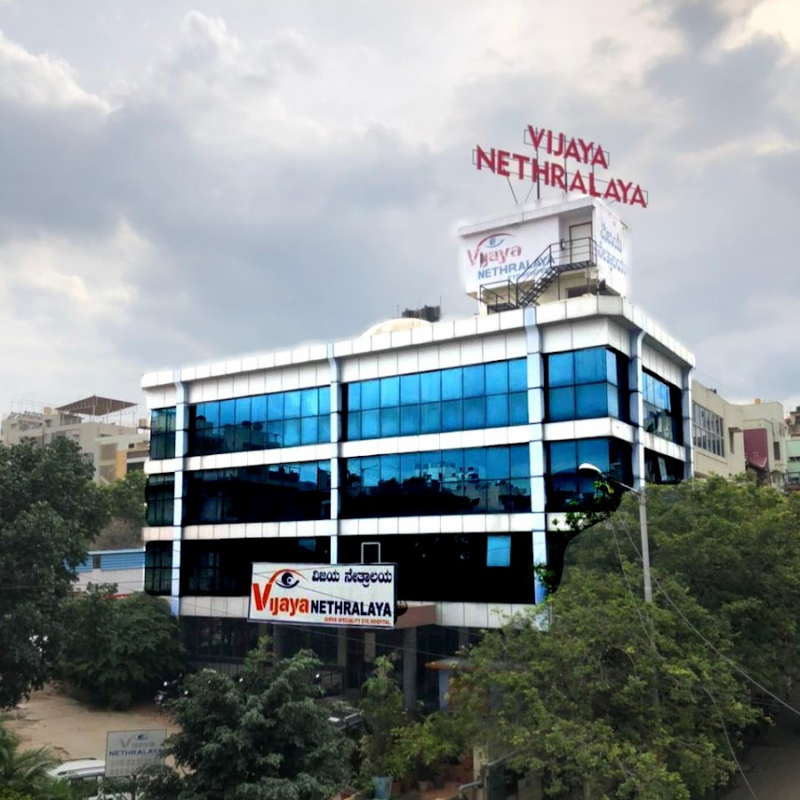Corneal edema is a condition that affects the cornea, the clear, dome-shaped surface that covers the front of the eye. It occurs when the cornea swells with fluid, leading to vision problems and discomfort. While it can be a temporary issue, chronic corneal edema requires proper diagnosis and treatment to prevent long-term complications.

Causes Corneal Edema:
- Trauma: Physical injury to the eye can lead to corneal swelling.
- Infections: Bacterial, viral, or fungal infections can cause inflammation and fluid buildup in the cornea.
- Eye Surgery: Certain eye surgeries, such as cataract surgery or corneal transplant, can sometimes result in corneal edema.
- Glaucoma: Increased intraocular pressure associated with glaucoma can affect the cornea’s ability to maintain proper fluid balance.
- Endothelial Dysfunction: Dysfunction of the corneal endothelium, the innermost layer of the cornea responsible for regulating fluid levels, can lead to corneal edema.
Symptoms of Corneal Edema:
- Blurred Vision: Swelling of the cornea can distort vision, making objects appear blurry.
- Halos Around Lights: Some individuals may experience seeing halos or glare around lights, especially at night.
- Eye Pain or Discomfort: Corneal edema can cause eye pain, a feeling of pressure, or general discomfort.
- Sensitivity to Light: Increased sensitivity to light, known as photophobia, is common among people with corneal edema.
- Redness and Tearing: The eye may appear red, and excessive tearing can occur as a result of corneal irritation.
Treatment:
- Topical Medications: Eye drops or ointments containing corticosteroids or hypertonic saline solutions may help reduce corneal swelling and inflammation.
- Oral Medications: In some cases, oral medications such as carbonic anhydrase inhibitors may be prescribed to reduce fluid buildup in the eye.
- Corneal Transplant: For severe cases of corneal edema that do not respond to other treatments, a corneal transplant surgery may be necessary to replace the damaged corneal tissue with a healthy donor cornea.
- Management of Underlying Conditions: Treating underlying conditions such as glaucoma or infections is essential in managing corneal edema.
Author Details:
Dr. Sushruth Appajigowda holds a prominent position as a Cornea, Cataract, Glaucoma, and LASIK Surgeon in Bangalore. He serves as the chief Cataract and Refractive surgeon at Vijaya Nethralaya Eye Hospital, Nagarbhavi Bangalore. Renowned as one of the finest LASIK surgeons nationwide, he brings with him over 12+ years of experience across multiple LASIK platforms, including ZEISS, ALCON, SCHWIND, AMO, and Bausch and Lomb. Having successfully conducted over 5000 LASIK procedures, Dr. Sushruth holds the title of a Certified Refractive Surgeon and a Fellow of the All India Collegium Of Ophthalmology. Furthermore, he stands as a distinguished speaker at various National and International Forums, using his expertise to guide you in selecting the most suitable procedure based on your health requirements.

Lhttp://vijayanethralaya.com/link-in-bio/
Conclusion:
Corneal edema is a potentially serious condition that can significantly impact vision and overall eye health. Early diagnosis and appropriate treatment are crucial in preventing complications and preserving vision.











